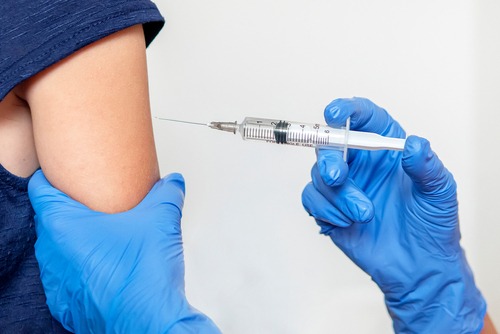
A vaccine candidate for eastern equine encephalitis virus (EEEV), western equine encephalitis virus (WEEV), and Venezuelan equine encephalitis virus (VEEV) proved safe, well-tolerated, and robust in antibody response during a Phase 1 clinical trial reported in The Lancet Infectious Diseases.
The trial was funded in part and sponsored by the National Institute of Allergy and Infectious Diseases (NIAID) Vaccine Research Center (VRC) and conducted at the Emory University Vaccine Center’s Hope Clinic. According to NIAID Director Anthony Fauci, such a vaccine could be beneficial for those at high occupational risk of contracting EEEV, particularly military service members and lab workers.
EEEV, WEEB, and VEEV are spread to humans through infected mosquitoes. Likewise, horses are susceptible, though they cannot then transfer the diseases to humans. Though rare, such infections in humans can produce flu-like symptoms, neurological damage, or death. Small, recurring outbreaks have cropped up in North, Central, and South America. Most recently, an EEEV outbreak in the northeastern United States led to 38 confirmed cases and 15 deaths. They are considered priority pathogens by NIAID.
This VLP vaccine candidate, WEVEE, was tested on 30 healthy adult volunteers between 18 and 50 years old who received varying doses of 6, 30, or 60 micrograms by intramuscular injection. Durable immune responses were reported against all three viruses, with the highest neutralizing antibody response observed in participants who received the 30 microgram dose with an alum adjuvant added. An advantage of VLPs like this is that, due to lacking the genetic material viruses need to replicate inside cells, VLPs cannot cause infection.
A commercialization license for the advanced development of the WEVEE vaccine candidate was granted to Emergent BioSolutions by NIAID.




